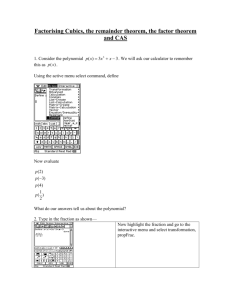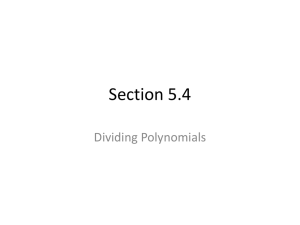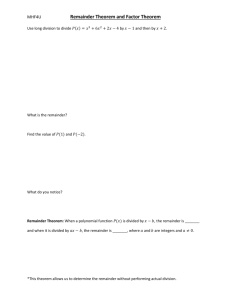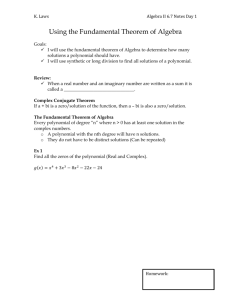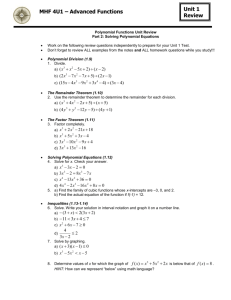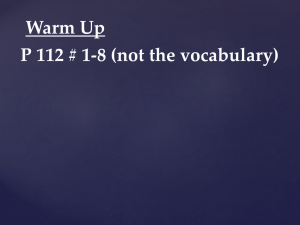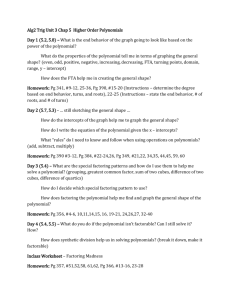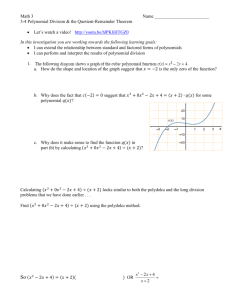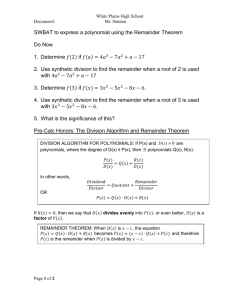In algebra, the polynomial remainder theorem or little - e-CTLT
advertisement
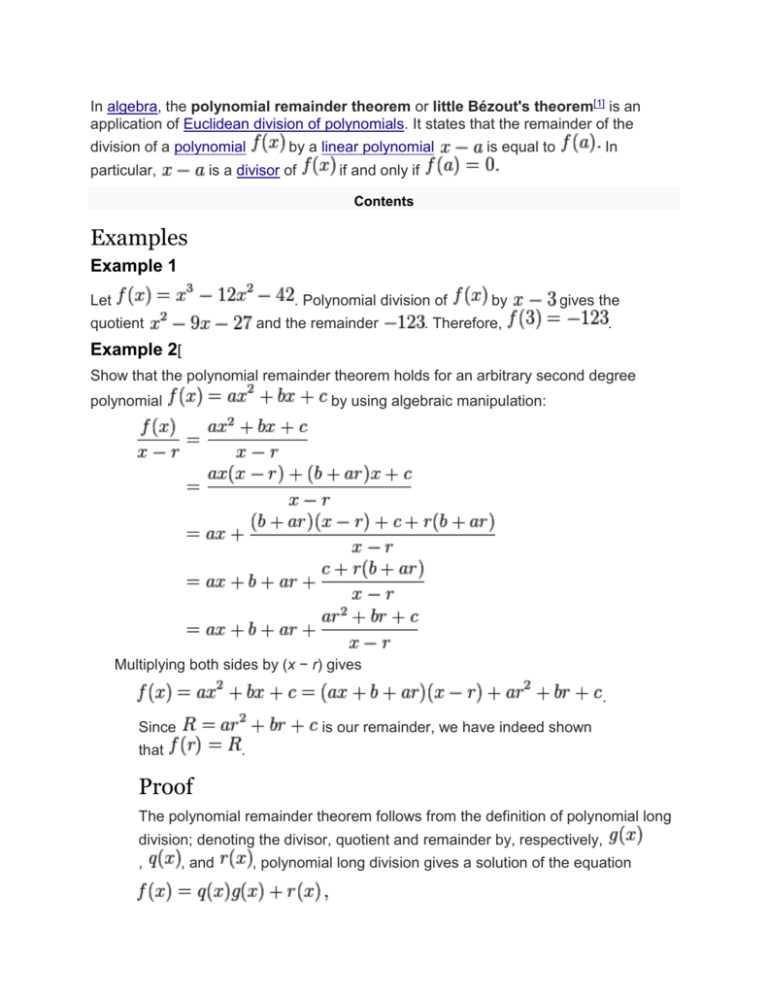
In algebra, the polynomial remainder theorem or little Bézout's theorem[1] is an application of Euclidean division of polynomials. It states that the remainder of the division of a polynomial particular, by a linear polynomial is a divisor of is equal to In if and only if Contents Examples Example 1 Let . Polynomial division of quotient and the remainder by gives the . Therefore, . Example 2[ Show that the polynomial remainder theorem holds for an arbitrary second degree polynomial by using algebraic manipulation: Multiplying both sides by (x − r) gives . Since is our remainder, we have indeed shown that . Proof The polynomial remainder theorem follows from the definition of polynomial long division; denoting the divisor, quotient and remainder by, respectively, , , and , polynomial long division gives a solution of the equation where the degree of is less than that of If we take as the divisor, giving the degree of i.e. . as 0, : Setting we obtain: Applications ] The polynomial remainder theorem may be used to evaluate by calculating the remainder, . Although polynomial long division is more difficult than evaluating the function itself, synthetic division is computationally easier. Thus, the function may be more "cheaply" evaluated using synthetic division and the polynomial remainder theorem. The factor theorem is another application of the remainder theorem: if the remainder is zero, then the linear divisor is a factor. Repeated application of the factor theorem may be used to factorize the polynomial. References 1. ^ Piotr Rudnicki (2004). "Little Bézout Theorem (Factor Theorem)". Formalized Mathematics 12 (1): 49–58. Categories: Polynomials Theorems in algebra
